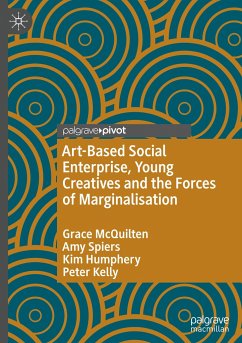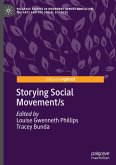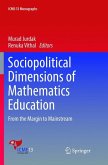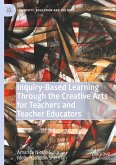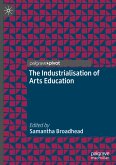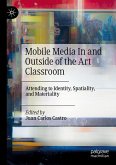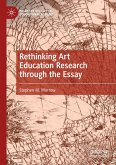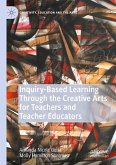This book analyses the challenges and opportunities faced by art-based social enterprises (ASEs) engaging young creatives in education and training and supporting their pathways to the creative industries. In doing so, it addresses the complex intersecting issues of marginality and entrepreneurship, particularly in relation to young creatives from socially, economically and culturally diverse backgrounds. Drawing on extensive fieldwork and interviews with twelve key organisations, and three in-depth case studies in Australia, the book offers a detailed analysis of using enterprise to engage with the structural challenges of marginality.
The book explores the local and global contexts through which art-based social enterprises (ASEs) operate and within which they attempt - often successfully - to improve access to education and work for emerging creatives. It also attends to the findings generated through engaging with the lived experiences of the staff and young creatives involved in our ASE case studies, in order to understand both the challenges and impacts of the ASE model on young people's education, training, and employment pathways.
The book focuses on three broad themes; precarious youth and digital futures, material practice and sustainable economies, and cultural citizenship in the urban fringe. In exploring these themes, the book contributes to debates about the limits, possibilities and challenges that attach to, and emerge from, an ASE model and highlights the ways in which these models can contribute to young people's well-being, engagement, education and training, and work pathways. More broadly, it examines the possibilities of art as a means of social and cultural engagement. In the context of the precarious future of the creative industries, this book emphasise the ways in which young artists are building alternative economic and cultural models that support both individual pathways and collective change.
This bookwill move the field forward with a critical lens that engages closely with experience and the lived realities of juggling multiple priorities of social, economic and artistic goals.
The book explores the local and global contexts through which art-based social enterprises (ASEs) operate and within which they attempt - often successfully - to improve access to education and work for emerging creatives. It also attends to the findings generated through engaging with the lived experiences of the staff and young creatives involved in our ASE case studies, in order to understand both the challenges and impacts of the ASE model on young people's education, training, and employment pathways.
The book focuses on three broad themes; precarious youth and digital futures, material practice and sustainable economies, and cultural citizenship in the urban fringe. In exploring these themes, the book contributes to debates about the limits, possibilities and challenges that attach to, and emerge from, an ASE model and highlights the ways in which these models can contribute to young people's well-being, engagement, education and training, and work pathways. More broadly, it examines the possibilities of art as a means of social and cultural engagement. In the context of the precarious future of the creative industries, this book emphasise the ways in which young artists are building alternative economic and cultural models that support both individual pathways and collective change.
This bookwill move the field forward with a critical lens that engages closely with experience and the lived realities of juggling multiple priorities of social, economic and artistic goals.

